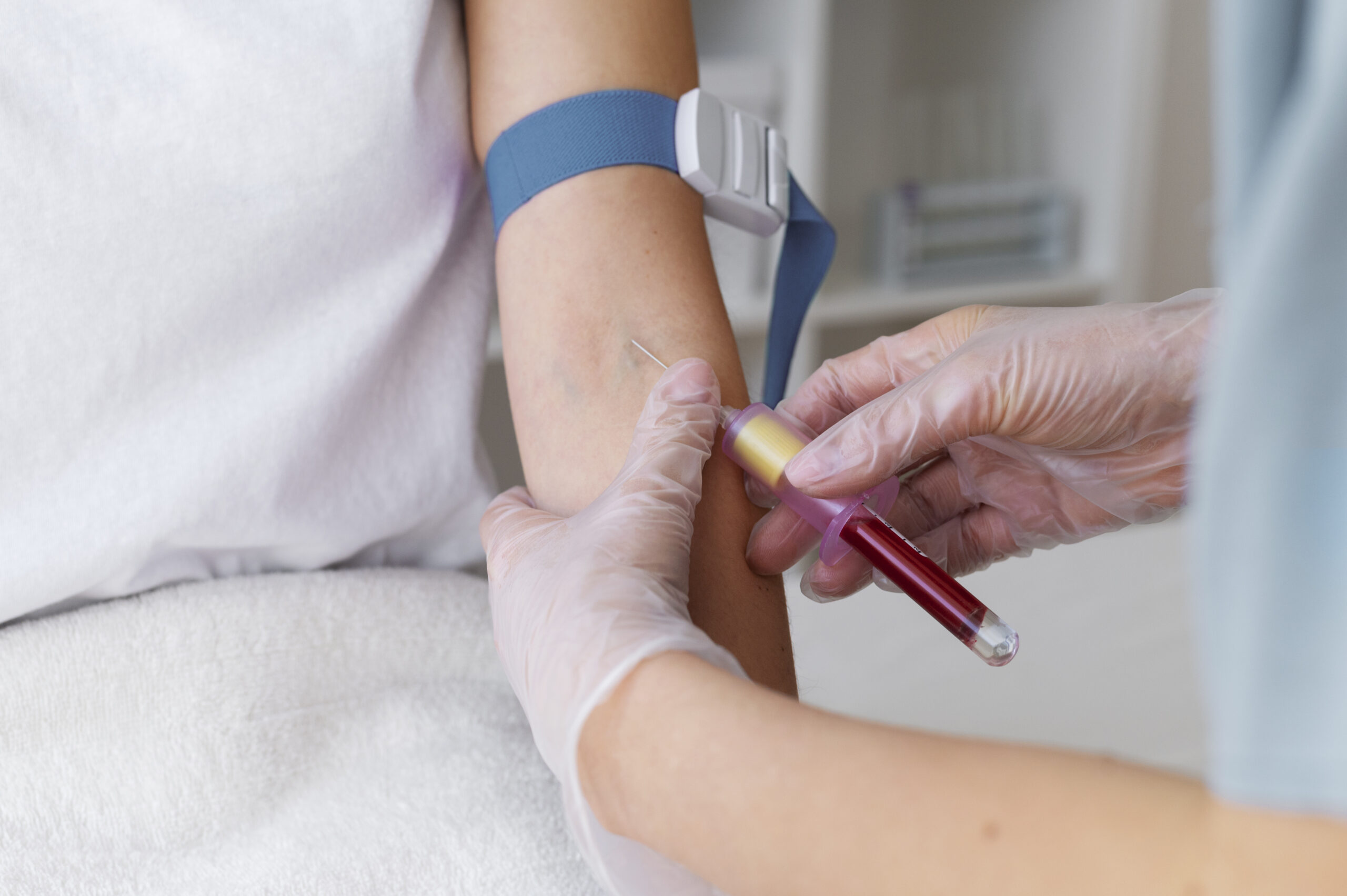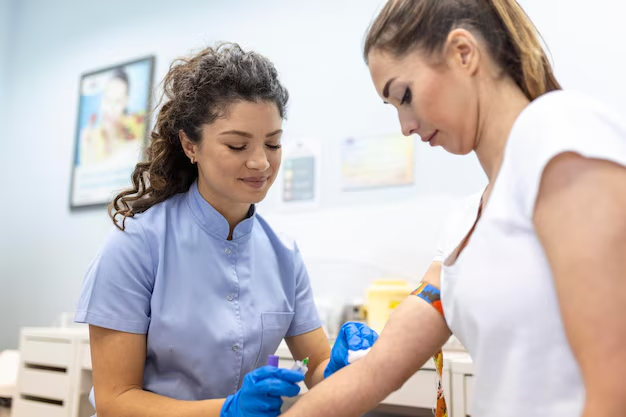Phlebotomy is a vital healthcare skill, with demand for trained professionals on the rise. In the UK, phlebotomist employment is projected to grow by 15% by 2028, creating around 19,600 new job opportunities.
If you’re considering a career in healthcare, phlebotomy could be the perfect starting point. In this guide, you’ll discover what phlebotomists do, the qualifications required, potential earnings, essential skills, and the career paths this role can open up.
What Is A Phlebotomist?
A phlebotomist, also known as a phlebotomy technician, is a healthcare professional who collects blood samples from patients. It is a highly valued skill known as ‘venipuncture’ or ‘blood draw’. They ensure the blood drawing process is safe, hygienic and comfortable.
The blood samples collected are then sent to the lab for analysis, diagnosis and treatment planning. Phlebotomists work in hospital wards, outpatient clinics, health centres, community settings, and GP surgeries.
The core duties of a phlebotomist are as follows:
- Going through patient records to correctly identify the patient scheduled to undergo venipuncture.
- Talk with the patients and explain the procedures.
- Gain consent from patients to perform a blood draw and answer any pertinent questions.
- Reassure patients.
- Keep the clinical environment clean and safe.
- Choose appropriate needles and blood sample tubes as instructed by the doctor.
- Locating the suitable vein in the patient and drawing blood safely.
- Prevent bleeding by applying band aids.
- Accurately label the blood sample tubes and send them to the lab.
- Maintain patient records after the process is completed.

How Do You Become A Phlebotomist
To become a phlebotomist, you need to have relevant qualifications and experience. Recruiters also expect you to have some basic literacy and numeracy skills. The position also requires you to have technical blood-drawing skills and soft skills.
Let us expand on each requirement in depth.
What Qualifications Do I Need To Become A Phlebotomist?
To become a phlebotomist, you need to have at least 2 GCSEs in the subjects of English and Maths. This is required for documentation tasks or administering medications.
Additionally, you must have relevant training in the field of phlebotomy. Begin by first completing an essential basic level phlebotomy training programme. Completing a foundational course from a recognised institution, such as the Phlebotomy Training Institute, will equip you with the basic knowledge and skills.
This training programme is currently provided in five locations in the UK: London, Birmingham, Bristol, Swindon, and Cardiff.
It is important to highlight here that completing the foundational course will not guarantee employment in the UK. This is due to the sensitive nature of phlebotomy. Since it is a delicate procedure, employers such as those in the National Health Service (NHS) typically hire those applicants who have completed advanced training.
Therefore, aim to complete both foundational and advanced phlebotomy training to improve your job prospects significantly.
Do I Need Experience To Become A Phlebotomist?
To become a phlebotomist, it is not mandatory to have work experience. That said, having previous work experience can greatly enhance your chances of employment. It shows that you possess the competence to perform your duties more efficiently.
If, however, you do not have work experience, opt for apprenticeships or volunteer work in your local area. It will build confidence and showcase your determination and willingness to enter this exciting healthcare field.
Consider registering with a professional body such as the National Association of Phlebotomists (NAP) or other associations to boost your credentials.
What Skills Do Phlebotomists Have?
Phlebotomists have a combination of soft and hard skills. The soft skills are mostly interpersonal, while the hard skills comprise technical aspects such as correct blood draw techniques. These skills are as follows:
- Good communication skills to explain procedures to patients and listen to their concerns.
- Strong empathy levels to comfort nervous or fearful patients.
- High patience to deal with challenging patients who may resist undergoing the procedure.
- Great attention to detail in identifying the right patient, labelling, documenting and adhering to safety guidelines.
- Proficiency in proper venipuncture skills.
- Understand and adhere to infection control to prevent diseases and maintain hygiene in the clinical environment.
How Much Do Phlebotomists Earn?
A phlebotomist earns an average salary of £12.25 per hour. The salary is subject to other factors such as the location, expertise levels, and organisation. For example, Senior Phlebotomists can earn more than those who have newly entered the field. Also, major city centres pay well in comparison to remote or rural areas.
What Are The Career Progression Opportunities For A Phlebotomist?
The career progression opportunities of a phlebotomist are wide and promising. With experience, you can progress to become a Senior Phlebotomist or team leader. Moreover, with training, you can also progress on to areas like paediatrics, nursing, or biomedical science.
Final Words
A phlebotomist is a healthcare professional who draws blood from patients. The blood samples collected are then sent to the lab for analysis, diagnosis and treatment planning.
To become a phlebotomist, you need to have good literacy and numeracy skills. Additionally, you need to complete your basic and advanced phlebotomy training to solidify your chances of getting employed.
Once you start working, you will develop other soft skills as well. As you gain experience, you can become a senior phlebotomist or enter other related clinical fields such as nursing or biomedical science.

